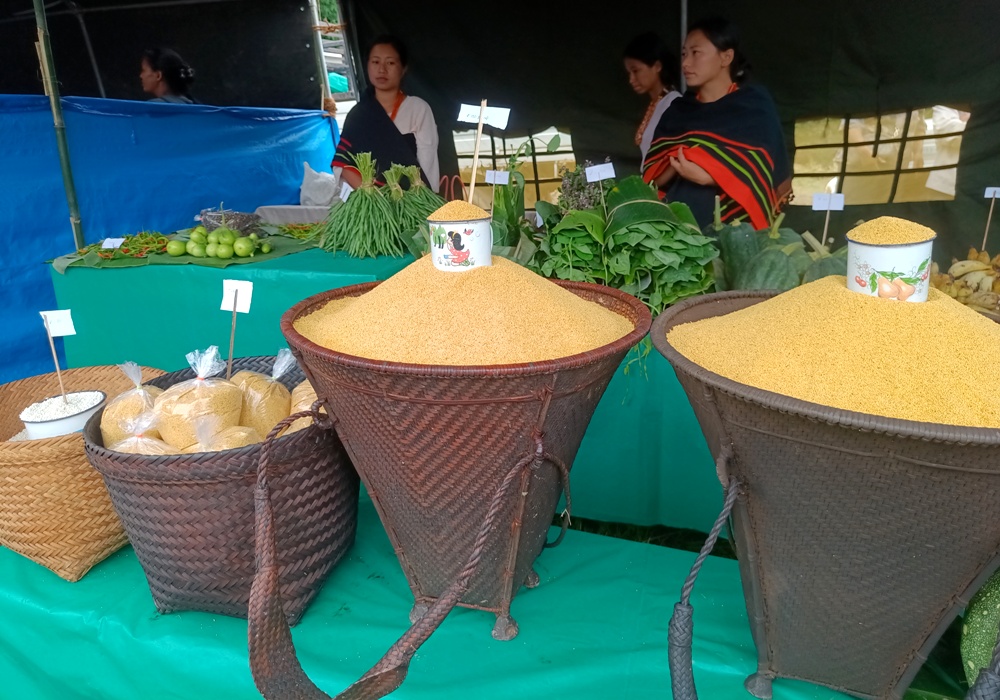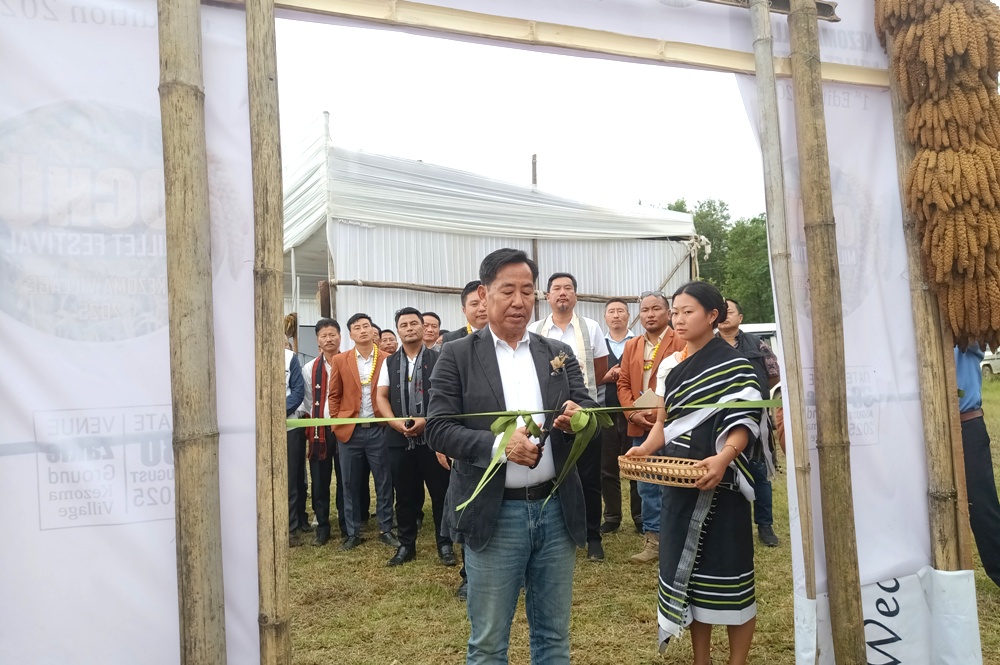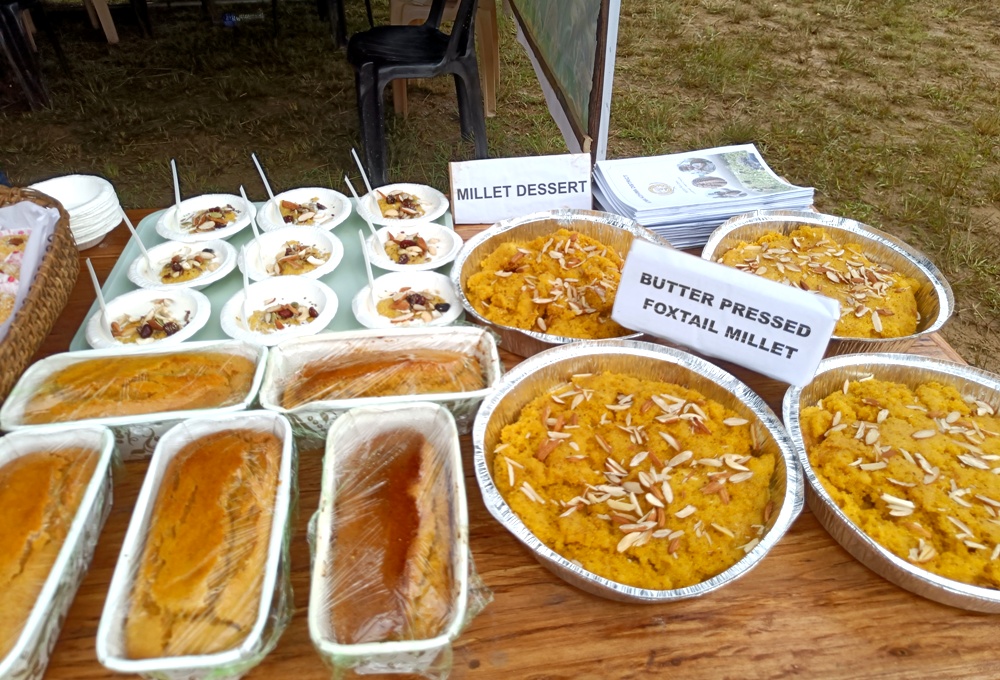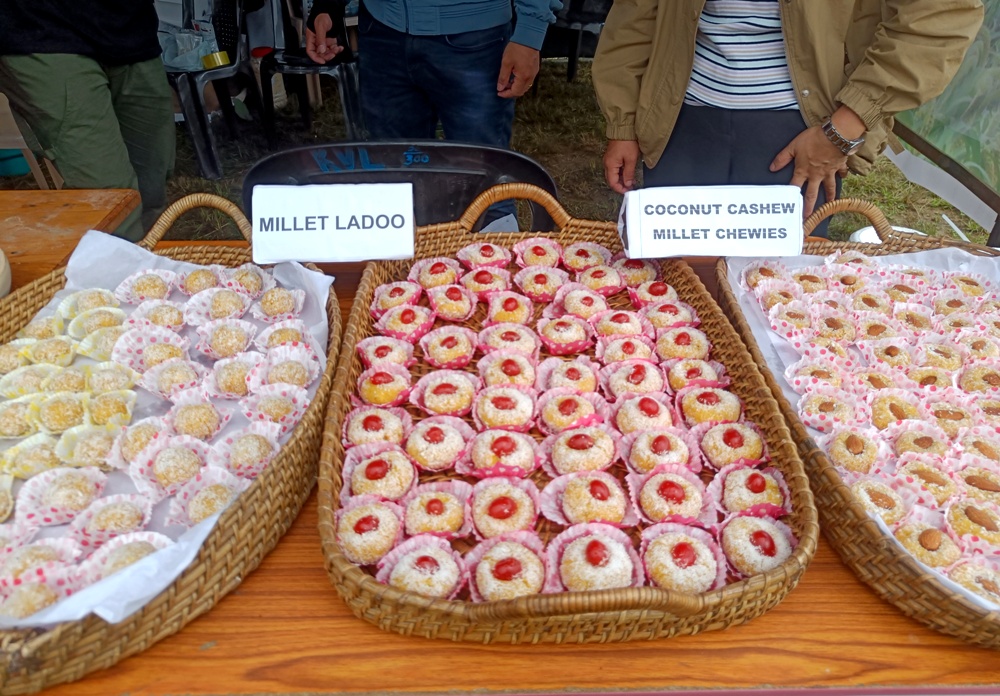SATURDAY, NOVEMBER 29, 2025
- Home
- Kezoma celebrates inaugural Millet Festival, bridging tradition and modern agriculture
Kezoma celebrates inaugural Millet Festival, bridging tradition and modern agriculture
Kezoma celebrates its first millet festival, promoting the blend of traditional farming with modern agricultural practices for sustainability.
Share

KOHIMA — The first edition of the Kezoma Village Millet Festival, organised by the Kezoma Village Council in collaboration with the department of Agriculture and supported by the department of Tourism, Nagaland, took place on Saturday at Zakie ground in Kezoma village, Kohima district.
Y Vikheho Swu, president of NDPP Agri and Allied Organisation and Managing Director of Okusa Toyota, graced the event as the special guest. In his address, Swu highlighted the organisation's role in bridging the gap between farmers and agriculture departments, working towards better facilities for the farming community.

Swu discussed the challenge of balancing traditional agricultural practices with modern advancements. He pointed out that while millet was once considered food for the poor, it has now become a staple for the wealthy, thus increasing the potential for millet cultivation.
He encouraged the villagers to continue growing millets as a sustainable choice for the future of the Naga community.
Also read: Nagaland: Heritage and potential drive Tseminyu’s journey as 13th district
A pressing issue Swu raised was the aging farmer population in rural areas, with younger generations moving to towns. He urged the youth to return to the villages, embrace modern farming techniques, and revitalize rural life.

While he underscored the importance of modern agriculture, he also stressed the need to preserve traditional practices, such as jhum cultivation, which is deeply tied to the Naga identity. “Our identity is attached to jhum cultivation,” he pointed out.
The chairman of Kezoma Village Council, Kikrosa Naki, submitted a memorandum to Swu, requesting that Kezoma be adopted into the NDPP Agri and Allied Organisation.
Naki mentioned that while the village had not cultivated millet for over 40 years, the declaration of 2023 as the Year of Millet by the government and the success of the millet festival at Kisama during the Hornbill Festival inspired the community to resume millet cultivation.
Read more: Kohima among safest cities for women in India
He also acknowledged the government’s support in providing machinery to assist with the processing of the crops.
Medovilie Ladu, Additional Director of Agriculture, and T Kakihe Sumi, Additional Director of Tourism, also spoke at the event.
Ladu reflected on the challenges faced by past generations, while Sumi highlighted the importance of millet in providing food security for Nagas in the past.

Sumi further maintained that community involvement is crucial for the growth of both the economy and tourism, stressing the importance of including the local community in development initiatives.
The organisers of the festival, known locally as Chünyi, explained that millet is one of the earliest crops harvested in the village.
Upon gathering the yield, the villagers offer it in reverence to the spirits, marking the occasion with a celebration. The festival is observed annually, spanning two days at the end of July and the beginning of August.
A notable aspect of the festival is the belief that it brings rain, which is essential for starting the paddy cultivation season.

